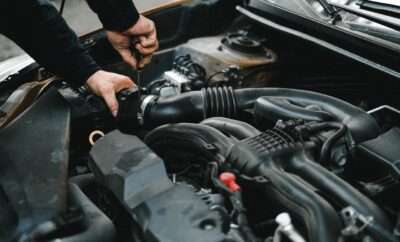
7 Benefits Of Renting Instead Of Owning Construction Equipment
7 Benefits Of Renting Instead Of Owning Construction Equipment
Do you need construction equipment to complete your next project? While you might be thinking of buying the equipment, there is actually a range of benefits that come with renting, from the reduced-cost to space-saving solutions.
The truth is; heavy construction equipment rentals have grown in popularity for a variety of reasons; the most important being the rising cost of new equipment. Which has forced companies to look for ways to cut costs such as renting instead of owning equipment. For many construction companies renting has become a more viable option as it provides the ability to cut costs that allows them to run a more financially stable business. Here are 7 advantages of renting construction equipment instead of buying it.
#1 – Reduce Start-Up Costs
Purchasing expensive new construction equipment requires significant financial resources and is a long-term commitment; that will have a huge impact on your company’s budget, especially for new businesses. Renting will reduce the huge upfront costs needed to purchase new equipment which many companies may have to cover by taking out a business loan. Financial resources saved can then be allocated to other aspects of the business that are equally important for running a successful construction business.
#2 – Shield Your Company from Market Fluctuations
There are many factors in the dynamic construction sector influencing the market that are out of your control; such as; the number of jobs available and the rise or fall of equipment costs. Renting equipment can shield your company from unpredictable financial downturns in the market. Renting is a flexible option that allows you to handle the rise and fall of market forces more easily rather than committing to one piece of equipment.
#3 – Reduce Maintenance, Repair, and Replacement Costs
Maintaining heavy construction equipment requires following a strict maintenance schedule that involves regular:
- Servicing
- Keeping track of replacement parts
- Retiring and replacing equipment
For the safe operation of equipment at optimal levels equipment must be constantly upgraded. According to the excavation team from Wayne’s Landscaping, these costs should always be factored in. They explain “although regular maintenance is just as important for rented equipment, the costs for repair and replacement will be significantly less as there is no need to worry about maintaining a particular piece of equipment for its entire life cycle.”
Removing the extra stress from an already busy schedule allows you to focus on the plans for the near future; instead of long-term maintenance programmes.
#4 – Eliminate the Cost of Depreciation
Ownership of equipment incurs considerable depreciation costs. In addition to the large upfront cost of purchasing, maintaining equipment for as long as possible and reselling it will require a large investment. As the value of the equipment continues to depreciate; it will be more difficult to recuperate the initial cost of your investment. To avoid financial losses due to depreciation, consider renting heavy equipment instead of owning. Construction software can be used to help maximise utilisation through better management of depreciation and other issues.
#5 – Target Project Specific Rentals
Construction companies often have to balance the management of a number of projects at once. According to the team at Mr Highlights Roofing, they say that financial constraints mean that “contractors may not be able to purchase each piece of equipment needed and incurring logistical costs to transfer and share them among multiple jobs.” Renting specific equipment needed for different projects will eliminate logistical delays and provide each project with the appropriate resources needed to get the job done as quickly and efficiently as possible which ultimately increases productivity.
#6 – Avoid Storage Problems
Construction companies need to have appropriate storage solutions in place to properly store equipment, not in use; to avoid exposure to harsh weather conditions that could cause accelerated depreciation. The concrete sealers from Driveway Doctor believe that warehousing is a significant cost that can be eliminated with rental equipment. They note “we work alongside builders who use construction equipment regularly. We’ve seen how the ownership of this equipment can put a serious financial strain on businesses. When you rent equipment, you can negotiate the time needed for that equipment with the vendor, eliminating the need for long-term storage.” Leasing will save the time needed for logistics planning and the cost of warehousing, especially if a fleet of machinery is needed.
#7 – Transportation Logistics
The time it takes to transport machinery can affect the efficiency and productivity of your projects. In addition, time wasted waiting for equipment to arrive can cause delays that will affect the productivity and progress of work on job sites. Renting equipment will allow you to keep equipment onsite, avoiding the burden of transportation logistics.
Are you ready to rent?
Although equipment rental is a viable option, it may not be the optimal solution for all construction companies. Necessary logistical and financial planning is needed to determine the course of action that will be best for your company. You may find that a combination of owning and renting may be a better solution. For many companies renting equipment will have some major advantages.















